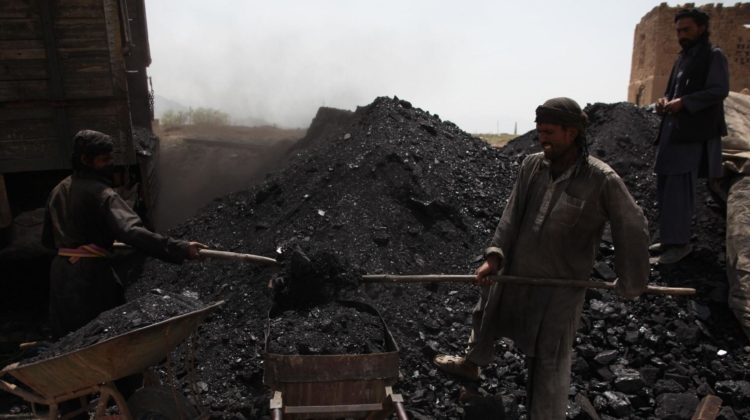New Delhi: Cash-strapped and cut off from international aid, the Taliban-led government is tapping into Afghanistan’s natural resources to boost revenue, media reports said.
Ever since the Taliban toppled the Western-backed government in Kabul and seized power in August 2021, the export of and customs duties from coal have become a key source of revenue for the militant group, RFE/RL reported.
Afghanistan has significant deposits of coal. Out of the country’s 80 coal mines, 17 are operational, with most located in central and northern Afghanistan. Much of the coal is being trucked to neighbouring Pakistan, which is facing a severe energy crisis, the report said.
The revelation sparked a public outcry in Afghanistan, where many have long viewed the Taliban as a Pakistani proxy. Islamabad has been the militants’ key foreign sponsor for decades and sheltered the Islamist group during its nearly 20-year insurgency against Afghan and international forces.
“The Taliban are sensitive to how Afghans domestically perceive them,” said Hameed Hakimi, an Afghanistan expert at the Washington-based Atlantic Council.
“Therefore, selling coal cheaply to Pakistan would inevitably paint them as Pakistani puppets,” he said, RFE/RL reported.
Ultimately, Hakimi said, the price hike has “a lot to do with the Taliban’s desperate need to raise funds and maximise revenues”.
The price hike came soon after Pakistan Prime Minister Shehbaz Sharif announced plans to import heavily discounted coal from Afghanistan using Pakistani rupees to save dwindling foreign reserves, RFE/RL reported.
Pakistan is reportedly re-evaluating its purchase of Afghan coal following the Taliban’s decision to more than double prices for the commodity. Chinese energy companies in Pakistan have threatened to stop importing Afghan coal.
But exports have hit snags recently after the Taliban hiked prices, in a move that has put off importers. Competing claims over coal mines has also triggered Taliban infighting, RFE/RL reported.
Foreign trade has fallen off dramatically since the Taliban seized power, and the international assistance that once propped up the Afghan economy has evaporated, leaving the Taliban to fund its government on its own. No country has recognized the Taliban-led government, which has been hit by international sanctions.
The Taliban has relied heavily on tax collection and the increased export of valuable natural resources like coal to generate revenue.
In May, the militants increased coal exports to Pakistan, aiming to generate more revenue from Afghanistan’s mining sector and capitalize on record prices for coal. Global supplies have fallen due to Russia’s war against Ukraine and top exporter Indonesia’s ban on exports.
The Taliban reportedly collected around $40 in million in customs duties from coal exported to Pakistan in the first six months of this year. The hard-line Islamists have also boosted coal exports to 1.8 million tonnes in the past year, a rise of 16 per cent. The Taliban has been exporting an estimated 12,000 to 14,000 tonnes of coal, mostly to Pakistan, each day, RFE/RL reported.
But the Taliban’s plan to use Afghanistan’s easy-to-extract coal deposits to generate much-needed revenue has hit roadblocks in recent weeks.
Last month, the Taliban increased its taxes on coal exports from 20 per cent to 30 per cent. In early July, the Taliban’s Finance Ministry said it also lifted prices for coal from $90 per tonne to $200 per tonne. On July 15, coal was trading at over $300 per tonne on international markets.
(IANS)




















